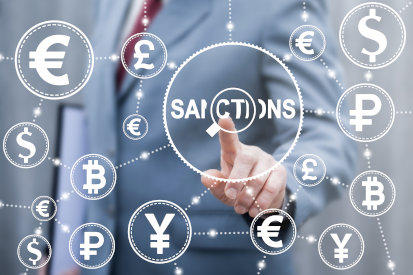Sanctions can be an effective measure in imposing restrictions on countries, persons and entities in situations of international concern.
The Autonomous Sanctions Regulations 2011 were amended on 21 December 2021, to establish thematic sanctions regimes in relation to serious violations or abuses of human rights, serious corruption, and significant cyber incidents.
In this article, we explore the impetus for these developments, and the practical implications of the changes.
Why have Australia’s Sanctions Regulations been amended?
The amended Sanctions Regulations give effect to the Australian government’s response to the December 2020 report of the Joint Standing Committee on Foreign Affairs, Defence and Trade inquiry into the use of sanctions to target human rights abuses.
The report made 33 recommendations, the principal recommendation being that the Australian government should implement targeted sanctions legislation to address serious human rights violations and corruption, similar to the United States’ Magnitsky Act 2012.
The Australian government has agreed to the majority of the recommendations set out in the report, and the amendments to Australian Sanctions Regulations reflect this.
What are the implications?
The Autonomous Sanctions Amendment (Magnitsky-style and Other Thematic Sanctions) Regulations 2021 allow the Minister for Foreign Affairs to impose targeted financial sanctions and travel bans against a person or entity that has engaged in any of the following behaviour:
- Been engaged in, responsible for, or complicit in serious violations or abuses of three human rights relating to physical integrity:
- Right to life.
- Right to not to be subjected to torture or cruel, inhuman or degrading treatment or punishment.
- Right to be free from slavery, servitude, or forced or compulsory labour.
- Been engaged in, responsible for, or complicit in serious corruption, defined as bribery or misappropriation of property.
- Caused, assisted with causing, or been complicit in, a cyber incident or an attempted cyber incident that is significant or which, had it occurred, would have been significant.
The Minister for Foreign Affairs has discretion to list a person or entity when in the national interest, following the agreement of the Attorney-General and consultation with any other Ministers as appropriate.
What are the benefits?
In its response to the report of the Joint Standing Committee, the Australian government states that it is focused on protecting and promoting global human rights, and implementation of the majority of the recommendations from the inquiry will “Expand the range of tools available to the Government to respond to situations of international concern involving human rights violations and abuses”.
It is further stated that “The Government recognises the importance of safeguarding our economy from the proceeds of the most egregious human rights violations and abuses and corruption. Such reform serves to not only bar such perpetrators from benefitting from the fruits of our democracy, but also to curb criminal foreign influence in our banking systems. Positioning Australia to act more quickly to freeze out perpetrators and beneficiaries in cooperation with likeminded partners will ensure that we do not become an isolated, attractive safe-haven for such proceeds.”
Key takeaways
In response to a report of the Joint Standing Committee on Foreign Affairs, Defence and Trade, the Australian government has amended its Sanctions Regulations to better combat serious human rights violations, serious corruption and significant cyber incidents. This will enhance the government’s response to situations of international concern and ensure that Australia does not become a safe-haven for the aforementioned type of activity.



